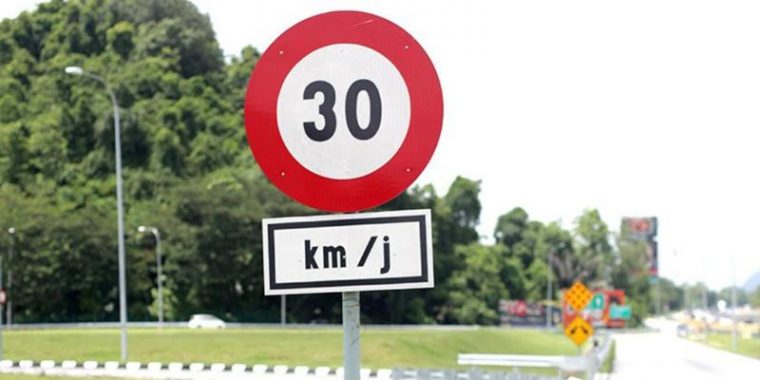In response to growing public concern over road accidents involving heavy vehicles, Transport Minister Anthony Loke has announced that the government is intensifying efforts to enforce mandatory speed limiters, on board video cameras, and seat belt regulations for buses and lorries in Malaysia.

The renewed commitment comes amid heightened scrutiny following a string of fatal accidents, including a recent tragedy on the East-West Highway that claimed 15 lives and injured dozens. The accident involved a 12-year old chartered bus that lacked modern safety features such as seat belts.
Minister Loke stated that while speed limiters are already required in new heavy vehicles, enforcement remains a significant challenge due to tampering by operators after inspections.

“Yes, we already have the framework to mandate them in all new vehicles. We have also taken the decision to make it mandatory. However, a major challenge remains with tampering, where operators modify the devices after official inspections by Puspakom to bypass speed restrictions. To address this loophole, we plan to introduce tougher regulations to prevent tampering and will take firmer enforcement actions”.
Onboard Cameras and Seat Belt Enforcement Under Review
Minister Loke also revealed that the government is considering making onboard video cameras mandatory for heavy vehicles. While not yet required by law, these technologies could significantly enhance post accident investigations and support real time monitoring of driver behavior.
On the issue of seat belts, he reiterated that all buses manufactured after 2020 are legally required to be equipped with seat belts. However, the bus involved in the recent fatal crash was built in 2013 and did not fall under the existing mandate.
“Seat belts are mandatory, but the challenge is compliance. There are sensors in modern vehicles that alert drivers when seat belts aren’t worn. This is the kind of safety measure we want to explore further, vehicles shouldn’t be allowed to move if passengers aren’t secured”.

Not a Lack of Laws, But a Lack of Compliance
Minister Loke dismissed claims that Malaysia lacks laws to address road safety. Instead, he said the real issue is in enforcement and instilling a culture of safety across all stakeholders, from government agencies and operators to the drivers and public.
“We do have laws that mandate the installation and use of seat belts. But the challenge is enforcement. How do we monitor compliance at all times? That is something we’re working on. There are sensors now, like in cars, that beep when seat belts are not used. These are the types of safety measures we will look at in more detail. We want to make it mandatory for drivers to ensure all passengers wear seat belts. If not, the vehicle should not be allowed to move. This is the level of enforcement we are aiming for. Again, the challenge is not the lack of law, but compliance and how to instill a culture of safety across all parties. That has always been the issue,” he said.
He acknowledged the backlash that sometimes follows new safety regulations, especially from industry players concerned about costs and operational disruptions.
A Call for Collective Action
Minister Loke called on vehicle operators, enforcement agencies, the public to work together to support these safety initiatives.
“We should not just point fingers. We must take real action. And when we do implement something, we need support from all sides, including industry players and operators.”
As the Ministry of Transport continues to refine and implement new safety frameworks, the message is clear. Technology alone will not be enough, it must be matched with accountability and a culture that puts safety first.
Sources: NST
Follow us on Instagram, Facebook or Telegram for more updates and breaking news.








